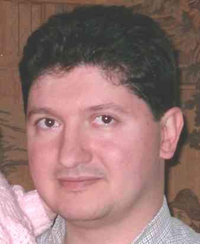Professor Carlos Cotta
The MiT Technology Review article Fermi Paradox Points to Fewer Than 10 Extraterrestrial Civilizations said
“The absence of alien probes visiting the solar system places severe limits on the number of advanced civilizations that could be exploring the galaxy.The Fermi paradox focuses on the existence of advanced civilizations elsewhere in the galaxy. If these civilizations are out there — and many analyses suggest the galaxy should be teeming with life — why haven’t we seen evidence of them?
Today Carlos Cotta and Ávaro Morales from the University of Malaga in Spain add another angle to the discussion. One consideration is the speed at which a sufficiently advanced civilization could colonize the galaxy. Various analyses suggest that using spacecraft that travel at a tenth of the speed of light, a colonization wave could take some 50 million years to sweep the galaxy. Others have calculated that it may be closer to 13 billion years, which may explain why we have yet to spot extraterrestrials.
Cotta and Morales take a different tack by studying how automated probes sent ahead of the colonization could explore the galaxy. Obviously, this could advance much faster than the colonization wave front. The scenario involves a civilization sending out eight probes, each equipped with smaller subprobes for studying the regions that the host probe visits.”
Carlos Cotta, Ph.D. is Associate Professor, Computer Science, University of Málaga. His research interests include: evolutionary algorithms, parallel and distributed systems, geographically distributed systems, combinatorial optimization, machine learning, bioinformatics, and operations research.
Carlos is on the Editorial Board of Evolutionary Computation Journal, Associate Editor of Journal of Artificial Evolution and Applications, Associate Editor of International Journal of Metaheuristics, on the Editorial Board of Memetic Computing, on the Editorial Board of Inteligencia Artificial, and on the Steering Committees of the EvoCOP conference and EvoBIO conference.
He coedited Adaptive and Multilevel Metaheuristics (Studies in Computational Intelligence), Recent Advances in Evolutionary Computation for Combinatorial Optimization, Evolutionary Computation in Combinatorial Optimization: 7th European Conference, EvoCOP 2007, Valencia, Spain, April 11–13, 2007, Proceedings, and Hybrid Metaheuristics: 5th International Workshop, HM 2008, Malaga, Spain, October 8–9, 2008. Proceedings.
His papers include A Gentle Introduction to Memetic Algorithms, Memetic Algorithms, A Hybrid Genetic Algorithm for the 0–1 Multiple Knapsack, Embedding Branch and Bound within Evolutionary Algorithms, Genetic Forma Recombination in Permutation Flowshop Problems, Finding Low Autocorrelation Binary Sequences with Memetic Algorithms, Local Search-Based Hybrid Algorithms for Finding Golomb Rulers, and Una Visión General de los Algoritmos Meéticos.
Carlos earned his MSc in Computer Science at the University of Málaga in 1994 and his Ph.D. in Computer Science at the University of Málaga in 1998.
